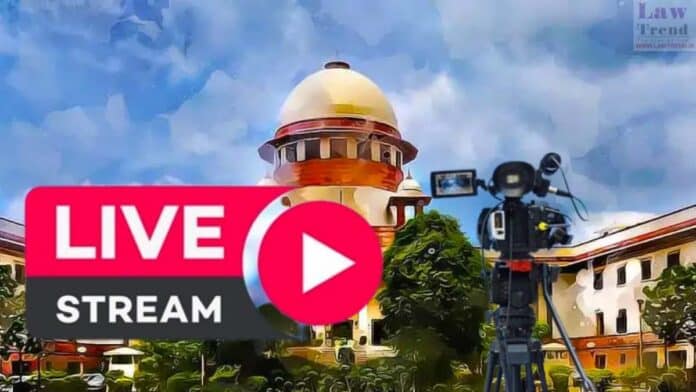The Supreme Court on Wednesday dismissed demands to cease live streaming of Karnataka High Court proceedings, asserting that shutting down transparency is not a viable solution. The decision came amid concerns that videos of court sessions were being misused on social media.
This issue was highlighted during a suo motu case initiated by the Supreme Court after videos of Justice V Srishananda making controversial remarks during live-streamed sessions became viral. The case was closed after Justice Srishananda apologized for his comments. The bench, led by Chief Justice DY Chandrachud and including Justices Sanjiv Khanna, BR Gavai, Surya Kant, and Hrishikesh Roy, emphasized the importance of maintaining openness in the judiciary.*
“Should I tell you the answer to sunlight is more sunlight, not to suppress what happens in the courts because this is a very important reminder to everyone. And the answer is not to close doors and shut everything down but to say ‘look how I reach these beyond these four walls,” said CJI Chandrachud.
The concerns about social media misuse were raised by Attorney General R Venkataramani, who described the social media reactions to the High Court judge’s comments as “vitriolic.” Solicitor General Tushar Mehta commented on the challenge of controlling social media due to the anonymity it provides.
The controversy began when the Advocates’ Association, Bengaluru, requested the Karnataka High Court to halt the live streaming of proceedings. They argued for restrictions against the public use of live-streamed videos, highlighting misuse by social media users and private channels on YouTube.
Justice Hemant Chandangoudar had responded to the Association’s petition by temporarily barring the public from using or uploading videos of the live-streamed proceedings on the High Court’s YouTube channel.
The viral videos that sparked the uproar included one where Justice Srishananda referred to a Muslim-dominated area in West Bengaluru as ‘Pakistan’ and another where he was seen jokingly reprimanding a female lawyer, suggesting she might disclose inappropriate details about the opposing counsel.




